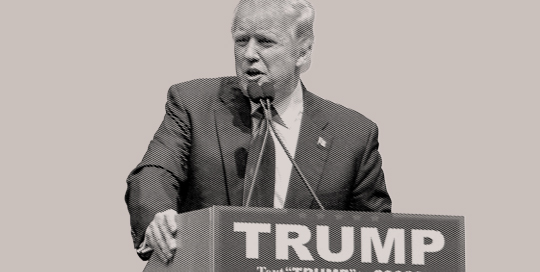
In the post-truth, Trump world we find ourselves in today, what might the public need to restore their faith in democracy, society and the world? To soothe the simmering discontent that has welled up at the ballot box in ways that have rocked our sense of what it means to live together civilly?
Already a difficult feat, today’s politics seem to have upped the ante on how to gain the trust of the people. Maintaining a positive relationship with the public has never been trickier.
We are not immune this in Australia, either. Research shows that over a quarter of Australians combine a specific set of negative attitudes towards politics and politicians: we are irritated by politicians talking rather than acting, annoyed with the compromises of politics, and supportive of a greater role for non-political actors in public decision-making.
Yet, if a newly elected government seeks to grow its political capital and goodwill, to effectively lead, act, and affect change, the key principles remain unchanged.
1. Vision
Paul Keating, one of Australia’s most visionary political figures once said, for him, “leadership has always been about two main things: imagination and courage. Imagination to divine a bigger schematic, a bigger world […] and a conscientious public, and I think the Australian public is conscientious, pick up a storyline pretty quickly.”
Love for, or hatred of, Keating aside, his point here is a good one: vision and clear communication are related. Without a clear picture in mind about the city, state or country you want to create, it becomes difficult to clearly articulate to the public what you want to do and why.
Having a clear, simple story, underpinned by purpose, is pivotal in forming a mature government.
2. Accessibility
Ubiquitous communications leaves nowhere for governments to hide. It’s time to open up. Voters, and organisations advocating on their behalf, expect to see, hear and speak to their elected representatives – literally, figuratively and digitally – via mediated, political and bureaucratic channels, and online, as well as in real life, face-to-face situations.
The public wants to be part of the process of identifying the problems a government seeks to solve, and not just sold the solution. This means engaging interested people in regular, productive and informed discussions, taking them along the policy-making journey. It’s about providing timely information, in detail and in context, for those who wish to trawl through it.
And it’s about listening. Accessibility is a two-way street, about providing, but also accepting information, ideas and concerns from bright minds – even when those minds may reside in organisations outside the government and bureaucracy of the day.
3. Results
Achievements inspire confidence. We all know this intrinsically. If we ask someone to do something, and they do it well and without a fuss, we will probably ask them again. If they don’t, at best, we hesitate the second time around.
In the political arena, the last Victorian election if nothing else showed us that doing things once in office matters. While the absence of action may avoid any harsh backlash, not doing enough can still lose an election.
Governments should achieve things. And while they can be large beasts to prod into action, movement must be made visible, even if it can’t avoid being slow and cautious. Be wary of exhausting the ever decreasing public patience. It doesn’t take long.
4. Credibility
For me, this has become the political holy grail. Being credible, believable and honest should be as simple as doing what you’ll say you’ll do. But all governments seem to come to office with such a high credibility deficit, we’re left gagging to see when their first promise will be broken.
It may, in fact, seem almost impossible to deliver credible government. But I’m an optimist. Making commitments and sticking to them should be a part of the recipe for any successful government. But doing it with authenticity, with a coherent set of principals behind it that you explain simply and honestly, is what will make believable.
Add these elements of vision, accessibility, results and credibility to the communication mix, and what comes out may be more than just good government, but also a trustworthy one with capital in the bank to enact the change they were voted in to deliver.
But when considering Trump, the question is whether good communication can ever make good government or vice versa…

